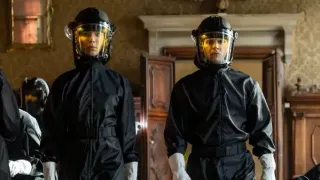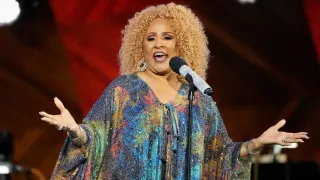April 25, 2022
India's Out Prince Manvendra Continues Quest to Stamp Out 'Conversion Therapy'
Kilian Melloy READ TIME: 3 MIN.
India's Prince Manvendra Singh Gohil, who bravely came out a dozen years before being gay was made legal there, spoke about his ongoing quest to stamp out the pseudoscientific practice of "conversion therapy," People Magazine reported.
In an interview with Insider, Manvendra – who is thought to be the first gay royal in the world to come out publicly – recounted how, when he let the world know he was gay in 2006 at age 41, his countrymen displayed rejection toward him.
"The day I came out, my effigies were burnt," Manvendra recalled. "There were a lot of protests, people took to the streets and shouted slogans saying that I brought shame and humiliation to the royal family and to the culture of India. There were death threats and demands that I be stripped off of my title."
"His parents, the Maharaja and Maharani of Rajpipla, responded with similar rage," Insider detailed. "They publicly disowned him as their son and took out advertisements in newspapers announcing that he was cut off as heir due to his involvement in activities 'unsuitable to society.'"
But his public coming out was no surprise to Manvendra's parents, whom he had told about being gay in 2002, Insider noted. Though the prince had known he was gay from the age of 12, his admission in 2002 sparked four years of attempts by his parents to "cure" the prince of being gay – with results that achieved absolutely nothing in the way of changing his sexuality, but that instead created trauma and emotional harm that are not atypical.
"They approached doctors to operate on my brain to make me straight and subjected me to electroshock treatments," Manvendra detailed to Insider.
That did nothing to change his inherent sexuality, so the prince was then "shipped to religious leaders who were ordered to make him 'behave normally,'" Insider continued. "None of it worked. But by the time his parents stopped their efforts," the prince "was left traumatized and depressed, often contemplating suicide."
The failures and harm caused by so-called "conversion therapy" haven't stopped attempts to "turn" LGBTQ+ people into heterosexual cisgender people. Some nations have banned the practice when it comes to minors, but in India, Insider noted, it "continues to be widely employed to physically and mentally assault the country's queer population, leading to increased depression and death by suicide among LGBTQ+ youth in India."
"In 2020, a 21-year-old bisexual woman committed suicide after her family subjected her to a harrowing two-month ordeal at de-addiction centers in Kerala in a bid to 'cure' her bisexuality," the article added.
Such suffering resonates personally with Manvendra. India.com recounted that as part of the campaign to "convert" him into a heterosexual, the prince was forced into an arranged marriage (it was short-lived). Love won out in the end: "The prince eventually married his husband in 2013," the site noted.
There are some signs of progress in India, including the decriminalization of being LGBTQ+, but socially, much remains to be done, media stories – and the prince himself – pointed out.
"It's important for people like me who have a certain reputation in society to continue the advocacy," Manvendra said of his continuing efforts to see "conversion therapy" banned. "We can't just stop because the country repealed Section 377," the section of British colonial-era law that made it an offense punishable by life in prison to be gay.
His advocacy doesn't stop at words. "In 2018, The prince came up with the idea of transforming his ancestral home into a support hub to financially and socially empower the community," People Magazine recalled.
"My decision to convert my royal establishment into an LGBTQA community center came up from my own life's experience when I was disowned by family," People recalled Manvendra telling the BBC. "This is precisely what happens to any other LGBT person in India. People still face a lot of pressure from their families when they come out, being forced to marry, or thrown out of their homes. They often have nowhere to go, no means to support themselves."






